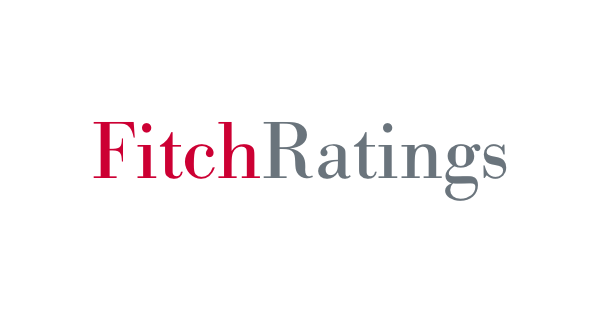September 29, 2020 (MLN): Economies all over the world, including Pakistan, are now experiencing a slowdown. Besides, a countrywide lockdown from March to June 2020 had pushed the country into socio-politico-economic disaster. Pakistan as a nation is going through testing times as Coronavirus (COVID-19) is unfolding one of the worst healthcare crises across the globe and has a rampant impact on the key economic indicators of Pakistan.
Institute of Chartered Accountants of Pakistan (ICAP), being a premier regulatory body, has always supported the government by providing professional input on various matters. Sensing the pulse with an upbeat mindset, Institute’s Economic Advisory & Government Relationship Committee organized a well-planned series of webinars to have a critical discussion on a rampant impact on the key economic indicators of Pakistan as a result of the global pandemic COVID-19 to deal with the prevalent worst healthcare crisis and suggest good measures for the economic revival.
ICAP’s recent review report named ‘Pakistan’s Economy: A review of post-COVID-19 Era / Perspectives’ summarized the discussions and insights of this important series of webinars for the convenience of business and finance leaders.
The webinar series were graced by the presence of governmental dignitaries namely; Dr. Abdul Hafeez Shaikh, Adviser to the Prime Minister on Finance & Revenue; Dr. Miftah Ismail, Former Finance Minister; Dr. Reza Baqir, Governor State Bank of Pakistan (SBP); and Mr. Aamir Khan, Chairman SECP to envisage governmental, socio-politico-economic, central bank’s and apex regulator’s corporate and capital markets perspectives.
According to the review report, the objective of the series was to support the Government of Pakistan in pulling out the country from the economic crisis.
The economic situation in Pakistan today is indeed worrying. This year's Pakistan Economic Survey 2019-20, has painted a dismal picture of the domestic economy, posting negative growth of 0.38 percent in 2020-21. According to the survey, Pakistan’s economy has plunged into deep distress as the period covered by the data includes mostly the first nine months of the fiscal year, meaning July 2019 to March 2020, much of what is portrayed cannot be attributed to the disruptions from COVID-19. The numbers betray troubling indicators deep inside the grooves of the economy, beyond the GDP growth, the report highlighted.
In the first series of Webinar ‘The Governmental Perspective: a political discourse’, Dr. Abdul Hafeez Shaikh, PM Advisor on Finance earlier estimated that COVID-19 has inflicted a loss of Rs. 3 trillion on the economy with GDP taking a hit of 3-3.5 percent. The economy seems very uncertain depending on how long the government takes to get rid of the virus and its adverse fallout on economic activities. While seeing a ‘V shape recovery’, a demand-driven recession can be expected if there is a massive fall in spending or there is a persistent drop in production, he further added.
He spoke at great length about the measures taken by the Government to deal with the unprecedented prevalent COVID-19 crisis. Embracing the challenge to devise governmental policies to begin economic activities and bring down the budget deficit within the desired limits that might escalate to over 9 percent of GDP for the outgoing fiscal year amid smart lockdown, he emphasized that the rising debt was problematic but the recent decrease in the interest rate and getting concessionary loans would help the government to reduce the debt burden. Describing the tax reforms, he said that the country would have to stay on the course of the tax reform path in the wake of coronavirus.
Talking about opportunities post COVID-19 era, he emphasized that amnesty schemes in the Construction, Textile, and Oil and gas sectors will pull back the nosedived economy. He mentioned due to the outbreak of COVID-19, exports and remittances were affected badly. The tax revenues that were expected to touch Rs. 4.7 or Rs. 4.8 trillion for the current fiscal year, now, it has fallen to Rs. 3.9 trillion. The government unveiled the stimulus package of Rs. 1,200 billion to deal with the economic recession.
Dr. Miftah Ismail, former Finance Minister deliberated and shared his comments regarding measures taken by the Government of Pakistan to deal with the prevalent COVID-19 crisis in detail on the second webinar series with the title ‘The Socio-Politico- Economic Perspective: an economic dialogue’.
He expressed how opposition foresees this economic disruption. As per the report, he suggested that the government should make ardent efforts to maintain the circular debt in order to avoid outages in the coming years.
Talking about the declining trend in GDP up to negative 0.38 percent, he drew the attention of the governmental authorities to devise a retention policy for the foreign reserves as these are dropping fast in the face of a huge import bill resulting in the balance of payments crisis looming due to the coronavirus pandemic.
Criticizing the government, Dr. Ismail suggested a reduction in sales tax on fertilizers, seeds, and other materials in order to nurture the agricultural sector to provide immediate relief to farmers. Extensive support should be provided to the Trade Development Authority of Pakistan (TDAP), which is a continuation of the erstwhile Export Promotion Bureau.
The Committee held another online event ‘The Central Bank’s Perspective: a monetary debate’ on June 03, 2020, wherein Dr. Reza Baqir, the Governor State Bank of Pakistan explained to the viewers that the central bank is taking extraordinary measures to address the challenges associated with these unprecedented times.
Recalling the worst economic situation in 2018 and early 2019, the governor emphasized that if the COVID-19 surfaced at that time, our economy would have been on its knees by now. The present government has done many efforts with limited resources to pull back the nosedived economy.
To overcome the consequences of lockdown in the country, the central bank took several measures, including the Rozgar scheme, relief package for households and businesses, supporting the health sector to combat the virus, relaxing credit requirements for exporters and importers, and facilitating new investment. These measures taken by the central bank has provided relief worth around Rs. 1 trillion to people and businesses.
He highlighted that the Pakistan Stock Exchange (PSX), which had dropped in March 2020 when the government-imposed lockdown, remained on the path to recovery. The KSE-100 Index, a barometer to gauge economic performance, remained ahead of Morgan Stanley Capital International (MSCI) Equity Indices AEs and MSCI Equity indices EMEs.
With respect to complaints by the Small and Medium Enterprise (SME) sector that the commercial banks were not providing them with required loans, he said that the SBP was focusing on bringing about a ‘stick and carrot policy’ for banks to provide maximum loans to small businessmen. He also assured to inject further liquidity to increase loans for the SME sector, the report underlined.
Emerging Markets and Developing Economies such as Pakistan are highly exposed, and capital markets are one of the main transmission channels of this on-going, global, systemic shock. Mr. Aamir Khan, the Chairman SECP highlighted key challenges and shared an overview of the active response taken as an apex regulator of the financial sector in the last webinar series with the title ‘Apex Regulator's Corporate and Capital Markets Perspective: Recovery from COVID-19’.
The chairman underscored the challenges facing by SECP include the mobilization operations to support financial markets and intermediaries, setting market discipline and protecting the interest of all stakeholders in the spirit of sustainability; ensuring regulatory compliance; managing of emerging risks; and adopting a strategic approach at national and international fronts to deal with the financial crisis as it is beyond recovery.
Appreciating the central bank’s role in safeguarding the economy in testing times, he shared the administrative, facilitative, and operational measures for business continuity through remote operations, work from home policies, and leveraging technology for uninterrupted operations at all levels such as online proceedings of AGMs.
In the end, Mr. Aamir Khan stressed the continued coordinated efforts of SECP to ensure effective liaison with the Government of Pakistan particularly with Ministry of Finance & State Bank of Pakistan to execute national response in a timely manner.
The report mentioned that SECP as a regulatory body asked the FBR to address anomaly created in the definition of ‘security’ for computation of Capital Gains Tax (CGT) on listed securities by extending critical relief towards the capital markets and corporate sector in the fiscal budget 2020-21.
The report concluded that Capital markets have shown a recovery trend at the economic front, but market volatility remains intense, as subtle changes in the post-COVID-19 phase may drive dramatic shifts in investor sentiment.
Copyright Mettis Link News
37184






